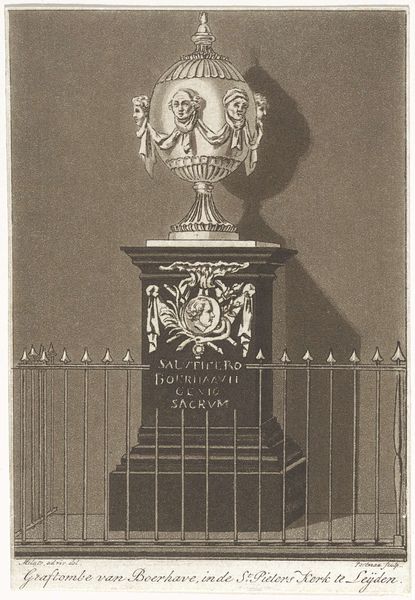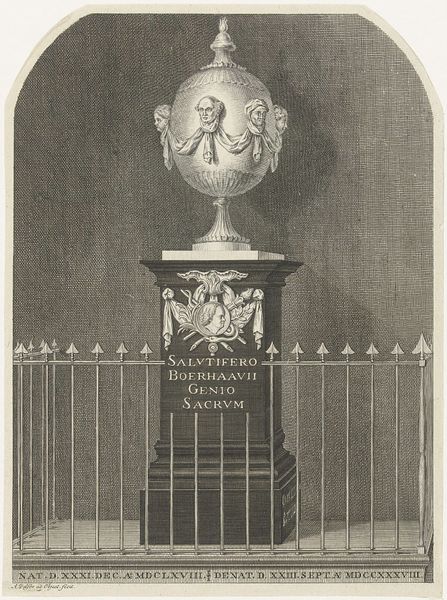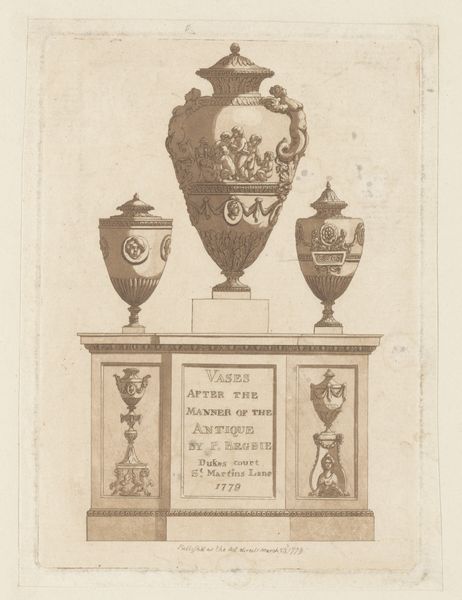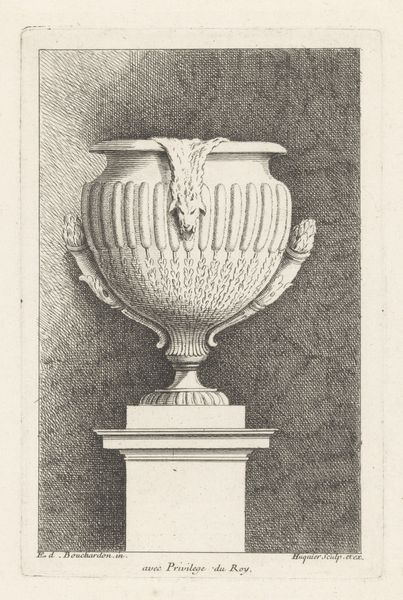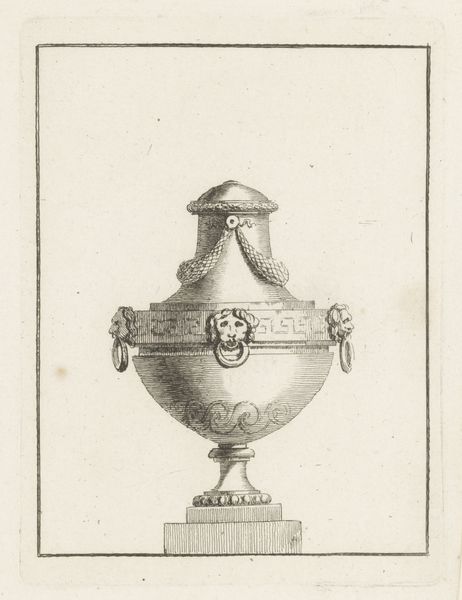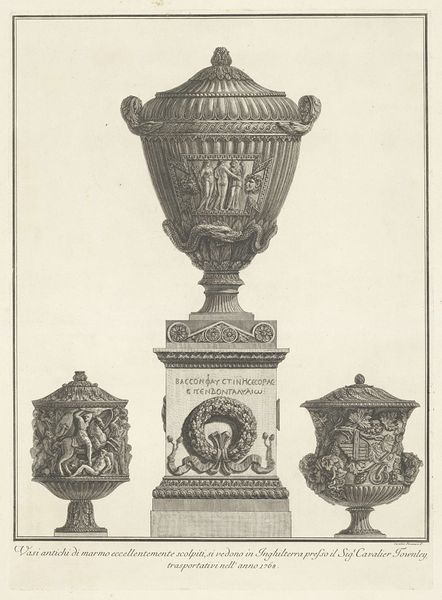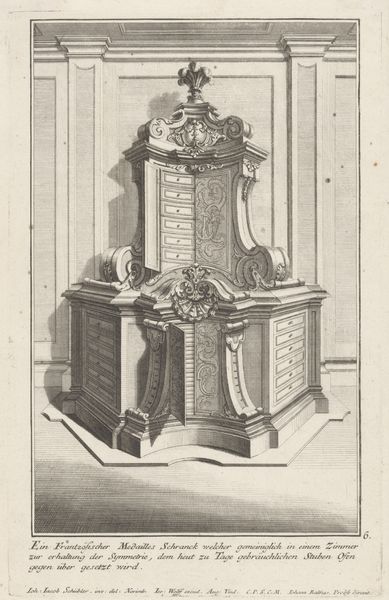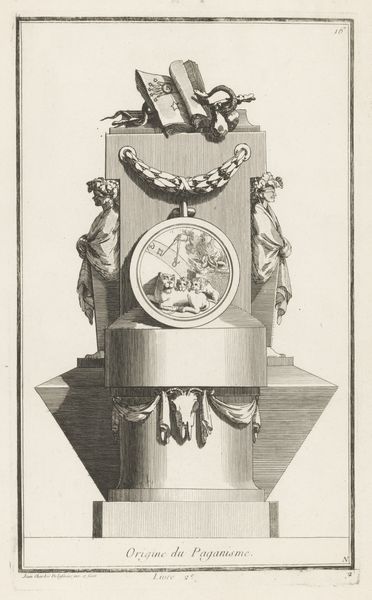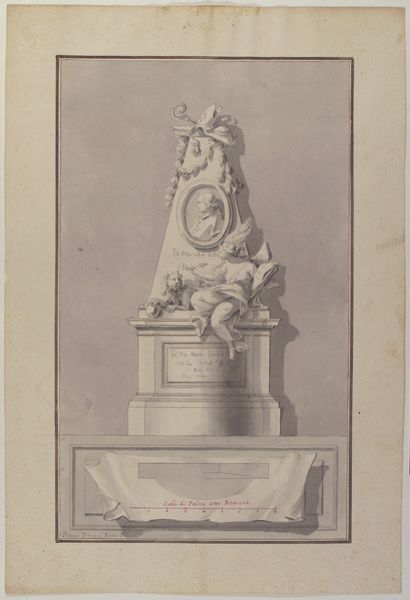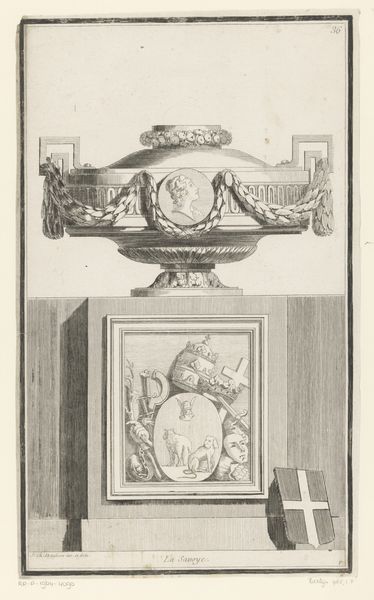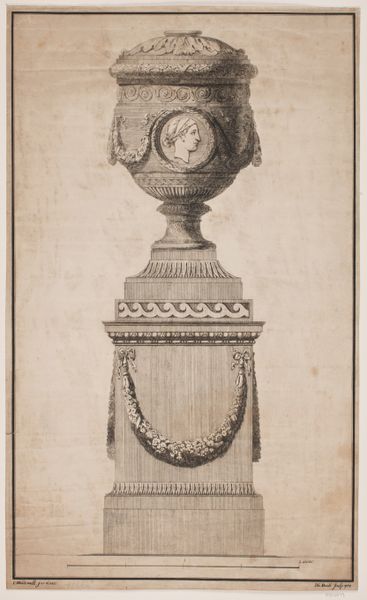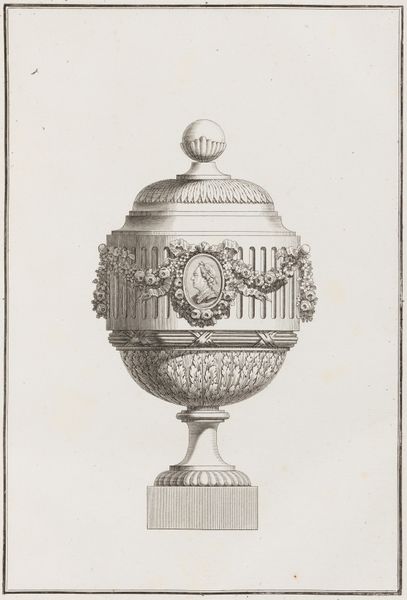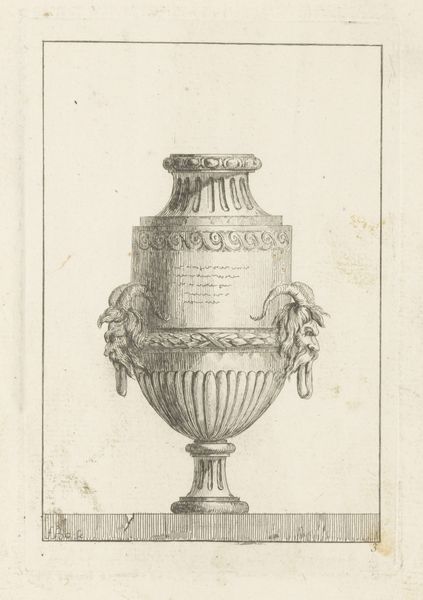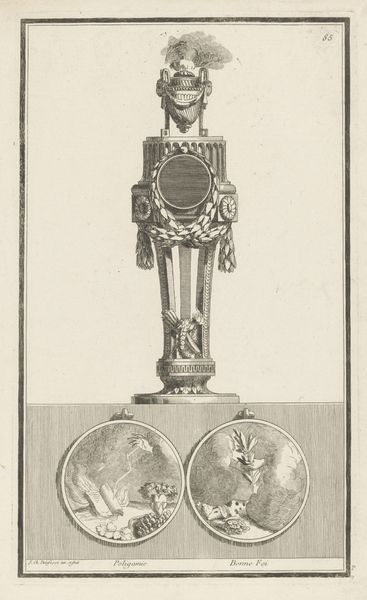
print, engraving
#
portrait
#
neoclacissism
# print
#
history-painting
#
engraving
Dimensions: height 177 mm, width 101 mm
Copyright: Rijks Museum: Open Domain
Pieter Hendrik Jonxis made this print of Herman Boerhaave's tomb around 1817, using etching and engraving techniques. Jonxis carefully cut into a metal plate, creating lines that hold ink and transfer the image onto paper. The print captures a memorial featuring a classical urn atop a pedestal. The urn is adorned with portrait medallions, while the pedestal bears an inscription. What interests me most here is the process and the layers of skill involved in creating this image. Etching and engraving are laborious, demanding processes, requiring precision and control. The engraver translates the three-dimensional monument into a two-dimensional image. Consider the social context: prints like these made art and information accessible to a wider audience. They democratized images, making them available beyond the realm of painting. This print embodies skilled craftsmanship and the power of reproduction. It’s a fascinating intersection of art, craft, and the circulation of knowledge in the 19th century.
Comments
No comments
Be the first to comment and join the conversation on the ultimate creative platform.
